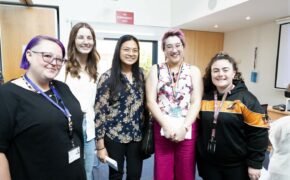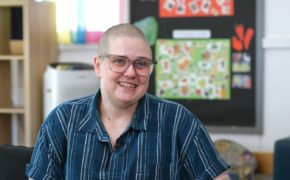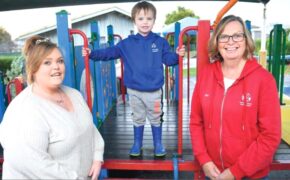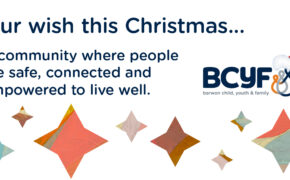The Barwon Local Drug Action Team (LDAT) is aiming to reduce the supply of alcohol to young people in the Geelong community by extending the Communities That Care (CTC) Smart Generation supply monitoring program into local sporting clubs in the region.
Louise McDonald, Barwon Child, Youth & Family’s (BCYF) CTC Coordinator said monitoring alcohol sales in the community was a core component of the CTC Geelong program and recent research has shown these activities have resulted in a reduction in liquor outlets selling alcohol to young people without asking for ID.
“It’s been very pleasing to see that since 2016 the sale of alcohol to minors has reduced by 13% in alcohol outlets in the Northern Suburbs of Geelong,” Louise McDonald said.
While results are showing liquor outlets are increasingly complying with the law and refusing to sell alcohol to underage youth, local sporting clubs remain an accessible point of supply of alcohol to under 18’s. Initial monitoring indicates that over 80% of sporting clubs sell alcohol to young people without asking for ID.
“Thanks to support from the Alcohol Drug Foundation’s Barwon LDAT, we are expanding our successful supply monitoring activities into sporting clubs to help them better manage alcohol and reduce the supply of liquor to underage people.” Louise McDonald added.
Local sporting clubs have welcomed the expansion of the activities, with the Geelong West Giants Gareth Drennan and Michelle Abbott saying they are happy to be working with the LDAT and BCYF to improve the culture and practice in their club.
“We want to be a community, not just a club. We are working to shift the focus of our club events away from alcohol to become more inclusive of family and the whole community.”
According to research, young people who use alcohol before they turn 18 are more likely to develop social, cognitive and emotional issues.
“Australia’s national alcohol guidelines clearly state that the safest option for young people is not to use alcohol before they turn 18. The earlier a young person starts drinking, the more likely they are to have impaired brain development and alcohol problems later in life,” said John Toumbourou, Chair in Health Psychology at Deakin University.
To support the range of work being done by the CTC and the LDAT, Louise McDonald also urged all adults, including parents, not to supply or sell alcohol to children under 18.
“We encourage parents to prevent their children, and their children’s friends, from consuming alcohol before they turn 18. Parents sometimes have the fear that if they don’t allow alcohol use at home, their children may rebel and use alcohol behind their backs.”
However, research shows that in families where parents set a rule that children are not to use alcohol, there are lower rates of underage alcohol use. In contrast, in families where parents allow moderate alcohol use, children are more likely to rebel with heavy and harmful alcohol use.
About the Communities That Care Smart Generation program supply monitoring activity:
The program involves young people aged 18-22, who look underage, going into local bottle shops and sporting clubs to attempt to purchase alcohol without a valid ID.
As part of this activity, letters are sent to all alcohol outlets and sporting clubs informing them of the activity, reminding them of the law and encouraging them to look into their policies and practices around alcohol sales.
About the Barwon Local Drug Action Team (LDAT):
The Barwon Region LDAT brings a number of community groups together to deliver targeted local responses to help reduce the impact of alcohol and drugs on young people. The Barwon LDAT is led by Barwon Child, Youth & Family in partnership with its Communities that Care Geelong program partners, in collaboration with Leisure Networks and the Geelong Cats.
Subscribe to our mailing list and stay up to date with the latest news and events from BCYF.





